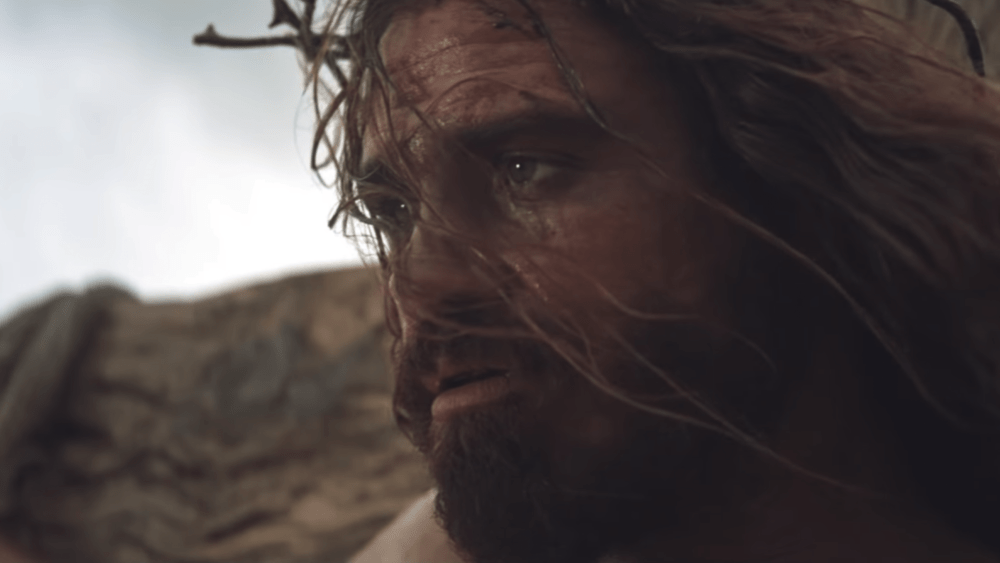A deliberately controversial Australian ad to promote organ donation imagines Jesus on the cross – discussing giving away his corneas, bones and kidneys.
Two Roman guards with ocker accents approach crucified Jesus. “We get it, no one wants to talk about death,” begins one soldier, before the pair launch into how helpful and life-changing it can be to donate organs.
With nails in his hands and feet, Jesus agrees to register his desire to give of his body. Mary and “earthly father” Joseph are trotted out, to endorse his being an organ donor after death.
#blessed and #nailedit are part of the soldiers banter with Jesus about his decision to join the organ-donor registry.
The bizarre exchange will prompt many believers in Jesus to outrage or, at least, disgust. Even those who support organ donation.
Beyond the irreverent use of Jesus as a spokesperson for the “Dying to Live” campaign, the ad totally ignores a critical issue. Jesus died … but he returned to life three days later.
Alive. In the flesh. Back from the dead.
Would Jesus have to ask for his corneas back?
Even those who don’t see Jesus as lord of their life know he’s the guy credited with rising from the dead. Just glance over the final few pages of all four gospels in the New Testament and one thing leaps out: Jesus didn’t stay dead. He’s ALIVE.
So, would Jesus have to ask for his corneas back? Or his kidneys? Or any other organ he donated a few days earlier? Probably not, although not simply because, well, he’s ALIVE.
As indicated by interactions Jesus had with people after he defeated death (see John 20-21) and the contrast in 1 Corinthians 15 between earthly bodies and resurrected bodies, there was something different and “heavenly” about Jesus after rising from the dead.
I’m not sure exactly what those differences are or if they could have any bearing on Jesus having donated organs. But I see nothing in the ad – aimed at raising awareness of the need for organ donors in Australia – to suggest anyone behind it considered the historic (inconvenient?) fact of Jesus not staying dead.
Importantly, the makers of the ad must have missed all the parts in Jesus’s personal history where he told people about his resurrection (see Mark 8:31-38 or Luke 18:31-33, for just two examples). It wasn’t a secret. Jesus warned of his comeback.
Those warnings are ignored by the Dying to Live campaign. But good on you for recognising Jesus was such a righteous man that he wanted to help others with his all.



